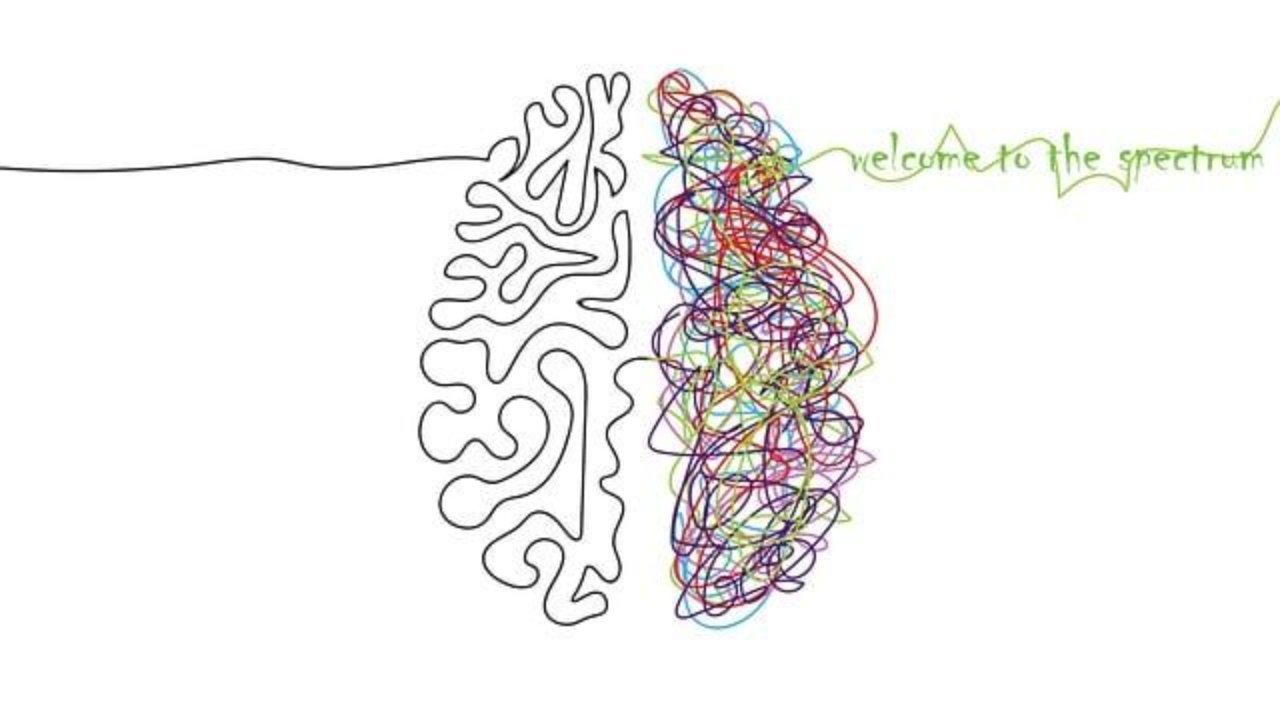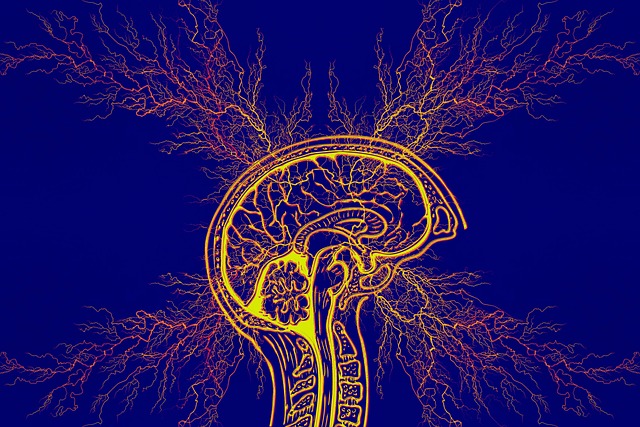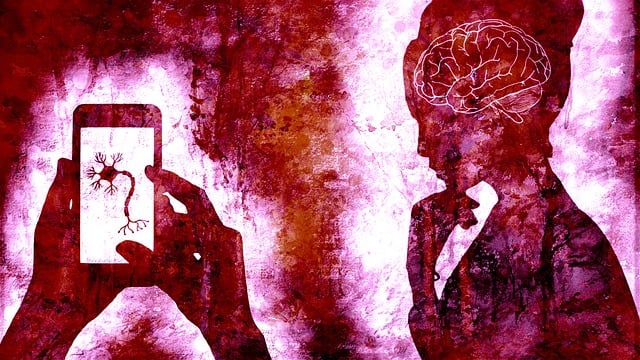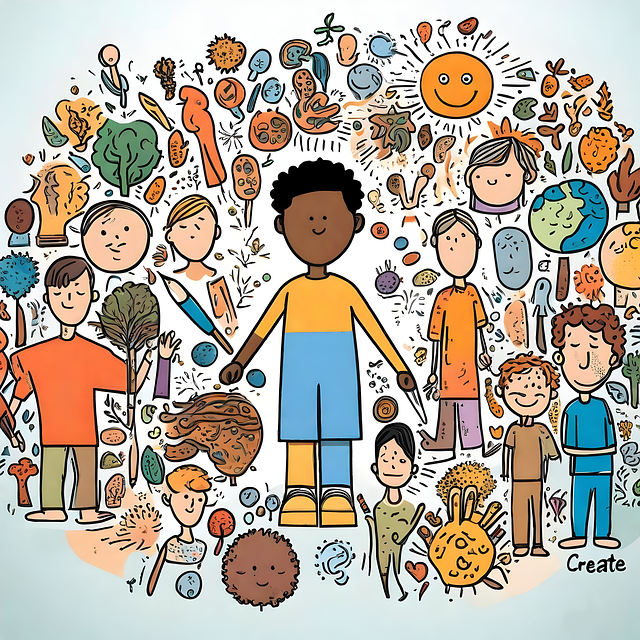Blog Corner: A.S.D. THINKING OUT THE BOX (Part 3).

Not so very long ago, the word Autism conjured up someone with fairly complex mental health needs, and perhaps some physical ones too, including mutism, which required specialist intervention and a high input of care.
Where we are today is in a hugely different place, but with still a very long way to go.
The term Neurodivergent has been invented to cover the many and increasing number of people who were considered to have a brain disability or disorder, but in actual fact, merely have a function of the brain from a different dimension.

NEURODIVERSITY:
It has now been established that there are many levels of Autistic Spectrum Disorders, (A.S.D.) which can have huge differences in how they manifest themselves.
I have already mentioned the most severe end of what is known as "the Spectrum", but at the other end, someone may display only a few characteristics which are barely noticeable.
Discussions have created such publicity, that many people believe that we are all on "the Spectrum" at some level, and we all compensate and find coping mechanisms to fill in the blanks or difficulties which we may encounter.
Certain observations have been made regarding individuals who are found to have ASD.
They may feel socially awkward and have difficulty picking up certain social cues, which may influence how they interact with others and establish friendships.
Unless understood, this can have a negative reaction on both sides, as the person with ASD feels different to others and doesn`t fit in.
Their peers may regard them as being slightly odd and anti social as they don`t join in so spontaneously as others, so they may leave them out of social gatherings and mainstream pursuits.
The term "Masking" is often used to describe how someone with ASD will try to compensate for the lack of social skills, by copying what others do, in the hope that they will be accepted, and not rejected or left out.
Girls are apparently much more successful at creating this coping mechanism, although it can be quite exhausting to continue this level of play acting, as it is not their natural instinct.
Other tell tale signs might be "stimming" which is a repetitive movement, often done as a comforting habit, or obsessional collecting or lining up of items. There may also be behavioural melt downs.
As there is no conclusive evidence as to what causes ASD together with other brain irregularities such as Attention Deficit Hyperactivity Disorder, (ADHD) and Dyslexia, the explanation given, is that the brain is "wired" differently.

REACHING CREATIVE BRAIN AREAS:
It does conjure up a picture of a brain with wires going in different directions, and depending where they go, will tap into different areas, often very specialized, which are not so marked in the average brain development.
It is therefore a huge plus for those wired "differently", as their creative abilities are brought into focus.
Whilst individuals with ASD may have difficulty with social skills, they are often very gifted in art, music, writing, and creativity in general, but sadly these qualities can be overlooked at school, as they don`t always fit into the expected educational mould.
It doesn`t stop there either, as they can "think out the box" and find creative solutions to problems and projects which would be unthinkable and too challenging for others.
FAMOUS INTERNET PLATFORM INVENTORS:

Thankfully, Neurodiversity is now being recognized and celebrated in all walks of life.
Think of the creators of the massively successful Internet platforms such as Facebook and Amazon, and the world`s richest man with his Tesla empire and now challenging space, and we begin to see the creative potential these people have.
They are often fearless in ambition, and will not be put off by obstacles, but will find ways around them.
The current technological world which to most of us is confusing and overwhelming, is often where individuals on the Spectrum feel at home and thrive.
They can work on their own, dispensing with the need for extensive social interaction, and concentrating on finding solutions and creating new inventions.

PROBLEM FIXERS:
Understanding Neurodiversity is key, and there is evidence that it is slowly happening.
However, individuals who suffer negative impact from their condition need support, which along with the many other mental health requests, is not always forthcoming.
Talking more openly about feelings and how they view the world, is both enlightening for both the person with ASD or ADHD, and the wider community.
There is no doubt that famous names admitting to being Neurodivergent, has clarified and helped to "normalise" a misunderstood situation.
Often individuals who are on the Spectrum, may appear not to have any issues, as they may do well at school and have a good employment record. They are described as being "high functioning". This a descriptive term as opposed to a diagnostic one.

ASD CAN HAVE UNDERLYING ANXIETY PROBLEMS:
Outwardly they may appear similar to their peers, but there could be anxiety, depression or feelings of inadequacy lurking below the surface. Being able to talk about these pressures can be very cathartic
There is no one treatment plan for managing ASD and ADHD.
Routine and planning are important to allow the individual to have the time and space to function.
Medication to reduce anxiety and depression, may be helpful, but other cognitive and forms of relaxation are recommended to be tried first.
It is becoming apparent that many people have lived their lives without being diagnosed, so have lived with the negative, rather chaotic feelings which were never explained to them.
Now in their sixties and seventies and older, they are finding a huge relief when reading the signs and symptoms, and discovering they had not been ill or stupid, just misunderstood.
It is only in recent times that many of the myths have been dispelled, as in reality, the capacity for diagnosis did not exist.
Doctors and health professionals, knowing very little about ASD and ADHD themselves, did not take an individual`s concerns seriously, and had no idea how they should be managed.
As more and more research and information is being found, it is good news for Neurodiversity.
Being "different" is being recognized as being part of the many nuances which are present in the brain.
We accept being tall or small, having straight or curly red, black or blonde hair, being fat or thin, or having different skin tones, so why shouldn`t we accept differences in our brain function?
The more we speak about it, and accept the enormous contribution Neurodiverse people can make, the less mystified we will be, and the more comfortable they will be in their own skin.






